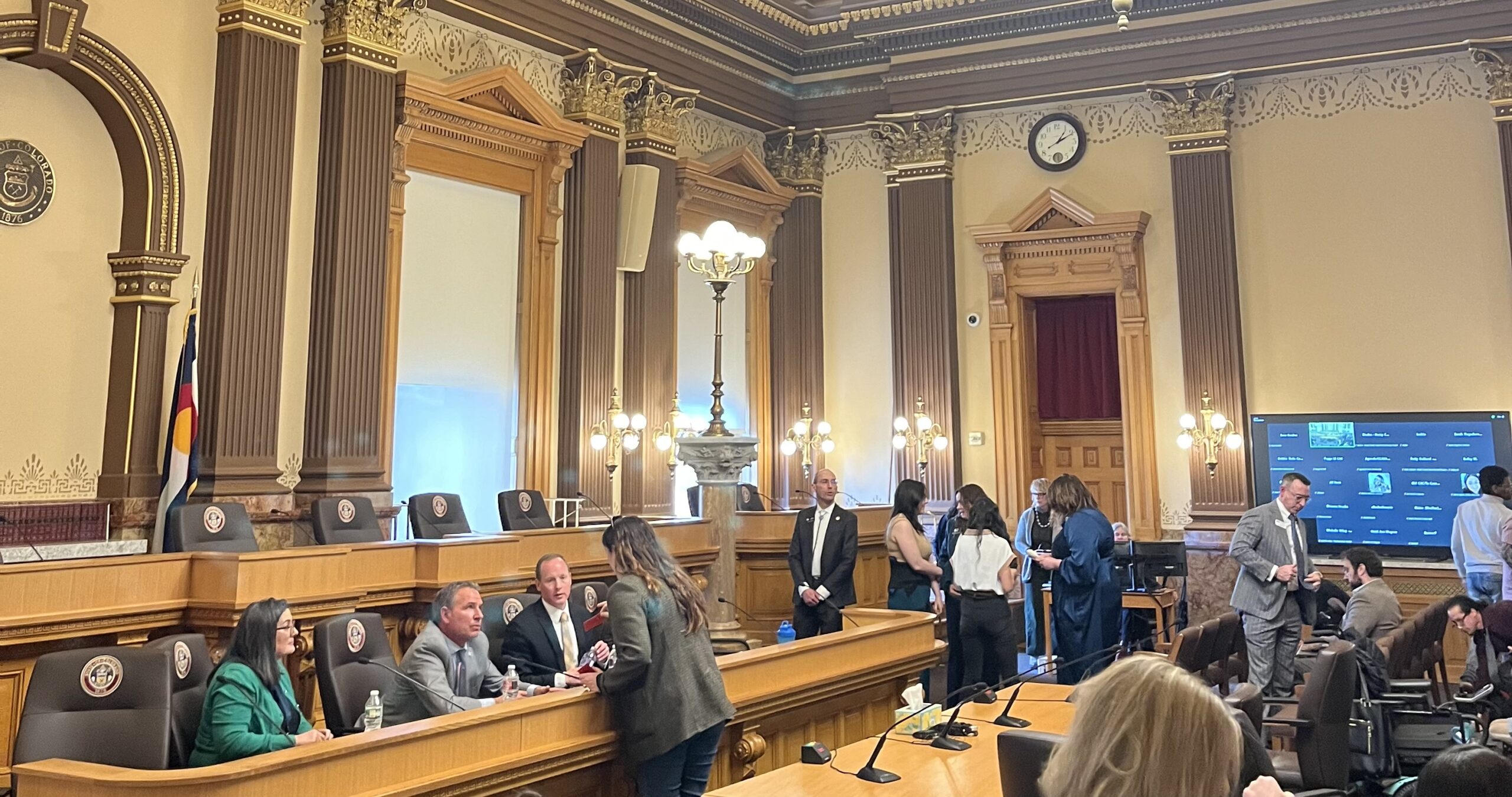“A single individual in this huge world of ours can still make a difference,” said former U.S. Supreme Court justice Sandra Day O’Connor to hundreds of DU law school students who packed the Ricketson Law Building last Wednesday.
Despite a modest self-introduction as an “unemployed cowgirl,” the first female Supreme Court justice in history seemed to provide living proof of the truth behind her words that the individual can be a powerful tool for change.
O’Connor was at DU also to receive acknowledgement for making that difference. DU’s Institute for the Advancement of the American Legal System gave O’Connor the Transparent Legal System Award, which is given to an individual or organization that works to improve the U.S. legal system.
O’Connor emphasized the importance of studying law and the judicial system to understand how the world works and why. She recalled the satisfaction she received from studying law at Stanford Law School when “the lights turned on in my head,” said O’Connor.
She encouraged students to persevere through the challenges of law school admitting, “I didn’t enjoy the tests, and I didn’t enjoy having to work hard all the time.”
O’Connor recalled how hard it was for a woman to obtain a job as a lawyer after law school. At that time, only 1 percent of law school students were female. Today over 50 percent of law students are women. O’Connor referred to this change as “a revolution for women.”
She said, “When I graduated, law certainly wasn’t an open door for
women. I couldn’t even get them to give me an interview, much less a job.”
She finally found employment as a deputy county attorney in San Mateo Country, Calif., where she worked for free and shared her office with the secretary.
O’Connor said persistence paid off in getting her the job, in the first place. She wrote the potential employer a letter outlining why she should get the job. The letter now is on exhibit in a museum housed in the old courthouse.
O’Connor retired from the Supreme Court last January to care for her husband who has Alzheimer’s disease.
When asked if she regretted the decision, O’Connor resolutely responded, “his needs came first in my book.”
Her mission now is to preserve the powers of both federal and state courts. She said initiatives such as Amendment 40 in Colorado would diminish the power of the judicial branch of government. Amendment 40, which failed last November, proposed to reduce the terms of sitting appellate court judges.
“Many of our citizens have forgotten why we have courts and judges and why they matter,” said O’Connor.
She stressed the important role the judicial branch plays in upholding the Constitution.
“The Constitution was written to protect who?” O’Connor asked the audience before responding to her own question. “All of us,” she said.
Part of O’Connor’s plan to maintain power in the judicial branch includes educating young people. She is currently working to develop interactive programs available through the Web where young people can learn about state and federal courts and decide issues for themselves.











